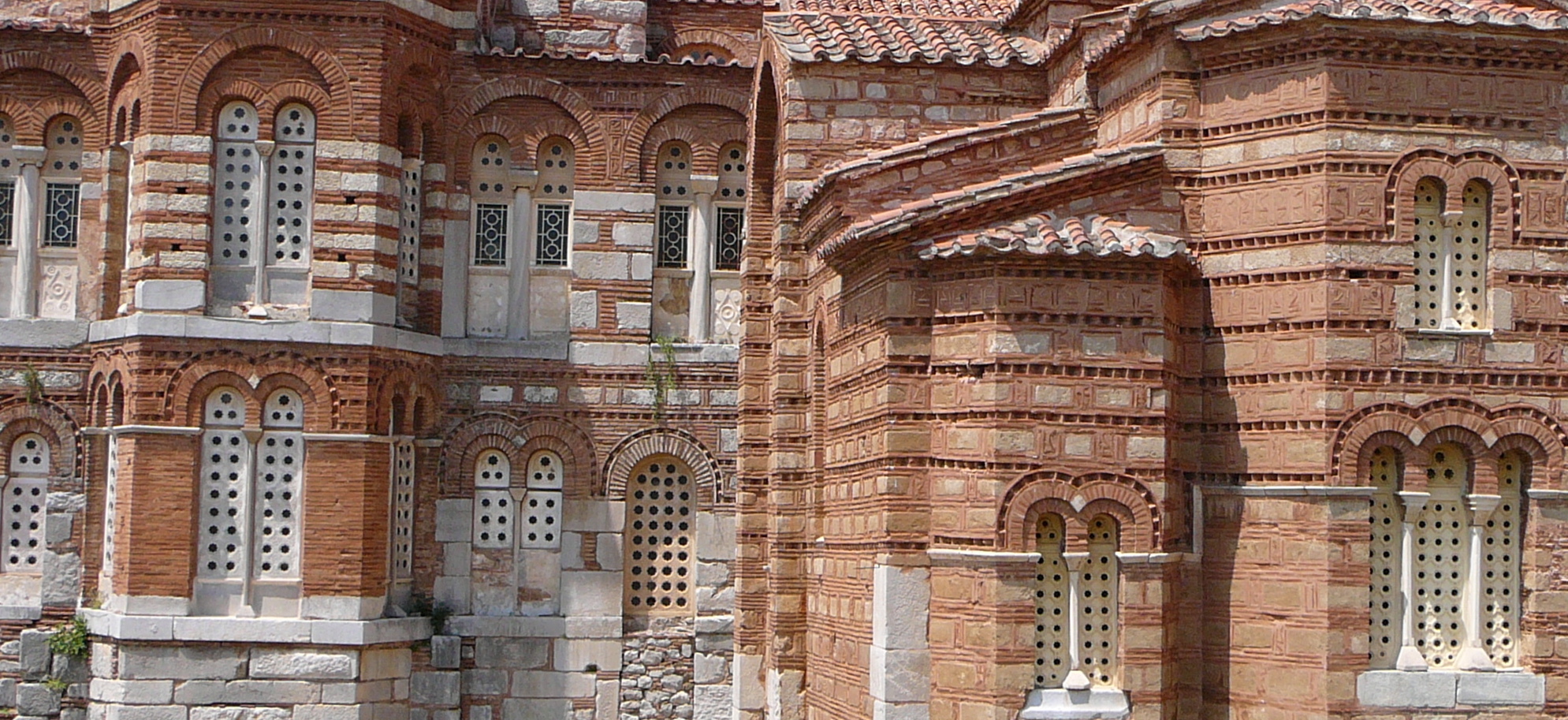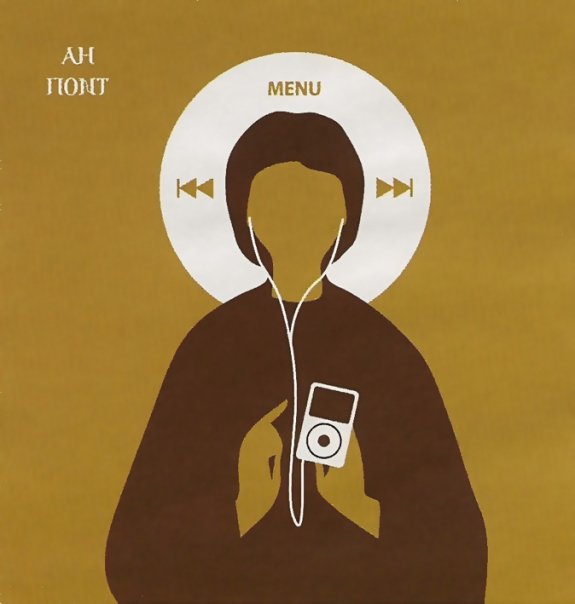Episodes

Thursday Dec 09, 2021
Thursday Dec 09, 2021
A conversation with Adam Goldwyn (North Dakota State University) about first-person narratives whose protagonists experience foreign conquest, captivity, enslavement, degradation, humiliation, and loss of rights. It is based on his recent book Witness Literature in Byzantium: Narrating Slaves, Prisoners, and Refugees (Palgrave MacMillan 2021), which uses comparisons to the literature of the Holocaust and the Atlantic slave trade to illuminate the insights of Byzantine texts that represent similar personal experiences. Can Byzantine literature speak powerfully to these transhistorical traumas? How can we activate it to do so?

Thursday Nov 25, 2021
59. What exactly ended in Late Antiquity?, with Polymnia Athanassiadi
Thursday Nov 25, 2021
Thursday Nov 25, 2021
A conversation with Polymnia Athanassiadi (University of Athens) about the way of life that ended in late antiquity. Scholars of Byzantium and the Middle Ages may see this as a period of new beginnings, but Polymnia doesn't want us to forget the practices and urban values that came to an end during it. The conversation touches on issues raised throughout her papers collected in Mutations of Hellenism in Late Antiquity (Variorum Ashgate 2015), as well as the concept of "monodoxy" explored in Vers la pensée unique: La montée de l'intolerance dans l'Antiquité tardive (Les Belles Lettres 2010).

Thursday Nov 11, 2021
Thursday Nov 11, 2021
A conversation with Elena Boeck (DePaul University) about her recent book The Bronze Horseman of Justinian in Constantinople: The Cross-Cultural Biography of a Mediterranean Monument (Cambridge University Press 2021). Though it is often overlooked today, Justinian's column and colossal statue, which stood for a thousand years next to Hagia Sophia, defined the City almost as much as the Great Church itself. We talk about the symbolism, history, and the engineering of this monument.

Thursday Oct 28, 2021
57. A global history of the Greeks, with Roderick Beaton
Thursday Oct 28, 2021
Thursday Oct 28, 2021
A conversation with Roderick Beaton (King's College London, emeritus) on his new book The Greeks: A Global History (Basic Books 2021). We discuss different ways to define who "the Greeks" were and are (in Byzantium Graikos meant a "Greek-speaker"); the diversity of groups that make up this story; how Byzantium can be featured in a diachronic history of Greek-speakers without being overlooked in favor of the ancients and moderns (as tends often to happen); and what might tie these Greeks together in a way that doesn't quite work for, say, "the English-speaking peoples."

Thursday Oct 14, 2021
56. Cyril, Methodios, and the conversion of the Slavs, with Mirela Ivanova
Thursday Oct 14, 2021
Thursday Oct 14, 2021
A conversation with Mirela Ivanova (University of Sheffield) on the creation of the Slavonic alphabet and the lives of its creators, the Byzantine missionaries Constantine-Cyril and Methodios. Despite the huge importance attributed to these men and their activities in modern scholarship, national narratives, and Slavic Orthodox identity, our knowledge about them rests largely on two texts whose interests are quite different from our own. What do we really know about them? The conversation is based on two of Mirela's articles, 'Re-thinking the Life of Constantine-Cyril the Philosopher,' Slavonic and East European Review 98 (2020) 434-463; and 'Inventing and Ethnicising Slavonic in the Long Ninth Century,' forthcoming in the Journal of Medieval History (2021).

Thursday Jul 29, 2021
Thursday Jul 29, 2021
We know so much about the Byzantines, and yet really so little. If we had the chance to meet and debrief one person from that world, who would it be? Join me in conversation with Paroma Chatterjee (University of Michigan) and Merle Eisenberg (National Socio-Environmental Synthesis Center, University of Maryland), as we wrestle with that question. Who might answer the burning questions that we have? Who would alert us to questions that we aren't asking because we are used to the limitations of our sources? How would we choose our questions? Our choices are, yet again, strikingly different.

Thursday Jul 15, 2021
54. The power and journeys of the True Cross and other holy relics, with Lynn Jones
Thursday Jul 15, 2021
Thursday Jul 15, 2021
A conversation with Lynn Jones (Florida State University) on how fragments of the True Cross were requested, gifted, traveled, repatriated, abducted, and returned in the early Byzantine period; how they were used to validate rival claims to power; and the anxiety caused by doubts over their authenticity. The conversation is based on a number of Lynn's publications, especially 'Perceptions of Byzantium: Radegund of Poitiers and Relics of the True Cross,' in L. Jones, ed., Byzantine Images and their Afterlives: Essays in Honor of Annemarie Weyl Carr (Ashgate 2014) 105-125.

Thursday Jul 01, 2021
53. What can we know about the life of the Prophet Muhammad?, with Sean Anthony
Thursday Jul 01, 2021
Thursday Jul 01, 2021
A conversation with Sean Anthony (Ohio State University) about the earliest sources for the life of the Prophet Muhammad, including the Quran, papyri, inscriptions, and Christian sources of the seventh century, and how Muslims were initially perceived by the Romans of the eastern provinces. The conversation is based on Sean's book Muhammad and the Empires of Faith: The Making of the Prophet of Islam (University of California Press 2020).

Thursday Jun 17, 2021
52. Crowd behavior in imperial Rome and Constantinople, with Daniëlle Slootjes
Thursday Jun 17, 2021
Thursday Jun 17, 2021
A conversation with Daniëlle Slootjes (University of Amsterdam) on the behavior of crowds in late antique Rome and Constantinople, based on her chapter "Crowd Behavior in Late Antique Rome," in the edited volume Pagans and Christians in Late Antique Rome: Conflict, Competition, and Coexistence in the Fourth Century (Cambridge 2015) 178-194. As our own political world is increasingly revolving around mass protests, it is time to revisit what we know about the dynamics of crowds in imperial Roman cities, whether they acted for or against the regime of the day. Check out also the volume that Daniëlle co-edited with Erika Manders, Leadership, Ideology, and Crowds in the Roman Empire of the Fourth Century (Stuttgart 2019).

Thursday Jun 03, 2021
51. Byzantine poetry on its own terms, with Marc Lauxtermann
Thursday Jun 03, 2021
Thursday Jun 03, 2021
A conversation with Marc Lauxtermann (University of Oxford) on how to read Byzantine poetry on its own terms and in its own context. We talk about how modern Romantic notions of poetry as well as the ancient meters of classical Greek have distorted the expectations that we place on Byzantine poetry, and then discuss the specific contexts that gave rise to poetry in Byzantine society. Who were the poets? How did poems accompany objects and events? The conversation is based on Marc's magisterial and highly recommended Byzantine Poetry from Pisides to Geometres: Texts and Contexts, 2 volumes (Vienna 2003 and 2019).

